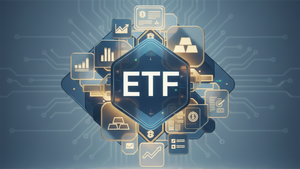
Washington D.C., November 21, 2025 – A coordinated global offensive against sophisticated cryptocurrency scam operations has reached an unprecedented intensity in recent months, culminating in a series of high-profile arrests, multi-billion dollar asset forfeitures, and the dismantling of vast criminal networks. From the jungles of Southeast Asia to the digital back alleys of money laundering, law enforcement agencies worldwide are signaling a zero-tolerance approach to illicit activities within the Web3 ecosystem. The establishment of the U.S. Scam Center Strike Force and a historic $15 billion Bitcoin seizure linked to Cambodian fraud syndicates underscore a pivotal shift, demonstrating authorities' enhanced capabilities and unwavering commitment to safeguarding investors and combating human trafficking often intertwined with these schemes.
The immediate reaction from the broader crypto community has been a mix of cautious optimism and renewed calls for robust security measures and user education. While individual token prices have not shown dramatic shifts directly attributable to these widespread crackdowns, the underlying sentiment suggests a growing consensus that a cleaner, more compliant ecosystem is ultimately beneficial for long-term adoption and institutional trust. This concerted effort by international agencies marks a significant maturation point for the crypto space, signaling that the era of anonymous, unchecked illicit finance is rapidly drawing to a close, paving the way for a more secure and regulated future.
Market Impact and Price Action
The recent deluge of law enforcement actions, while not directly targeting specific major cryptocurrencies or decentralized finance (DeFi) protocols, has sent a clear message across the market regarding increased regulatory scrutiny and the diminishing safe havens for illicit funds. The sheer scale of the seizures, particularly the U.S. Department of Justice's record-breaking forfeiture of over 127,000 Bitcoin (approximately $15 billion) linked to Cambodia's Prince Group, serves as a powerful deterrent. While Bitcoin (BTC) and Ethereum (ETH) prices have largely absorbed these events without significant volatility, maintaining their broader market trends, the psychological impact on criminal enterprises is undeniable.
Trading volumes for privacy-enhancing coins and services, such as those offered by now-defunct mixers like Samourai Wallet, are expected to see continued pressure as law enforcement tightens its grip. The sentencing of Samourai Wallet's founders, Keonne Rodriguez and William Lonergan Hill, for facilitating over $237 million in illegal transactions, underscores the growing risk associated with tools perceived to aid money laundering. This crackdown reinforces the narrative that anonymity, while a core tenet for some in the crypto space, will not shield criminal activity from the long arm of the law.
The broader market, however, appears to be interpreting these developments as a positive step towards legitimization. Increased enforcement against fraud and illicit finance can reduce systemic risk and enhance investor confidence, potentially attracting more traditional financial institutions and retail investors who have been hesitant due to the perceived lawlessness of the early crypto days. This could contribute to a more stable and mature market environment in the long run, even if it means short-term discomfort for actors operating in grey areas. Key support levels for major cryptocurrencies remain largely driven by macro-economic factors and broader adoption trends, rather than these specific law enforcement actions, which are seen as a necessary cleansing process.
Community and Ecosystem Response
The crypto community's reaction to the intensified global crackdown has been multifaceted, reflecting the diverse ideologies within the Web3 space. On one hand, there's a palpable sense of relief and vindication among victims of "pig butchering" and other elaborate crypto scams, with social media platforms like X (formerly Twitter) and Reddit seeing a surge in discussions praising the coordinated efforts of agencies like the FBI, U.S. Secret Service, and OFAC. Crypto influencers and thought leaders have largely echoed this sentiment, emphasizing the importance of a secure and trustworthy environment for the industry's sustained growth. The recovery of stolen funds by Thai authorities, in collaboration with major exchanges like Binance (BNB) and Bitkub, serves as a tangible example of effective public-private partnerships.
Conversely, the sentencing of the Samourai Wallet founders has sparked renewed debate among privacy advocates and some segments of the DeFi community. Concerns have been raised about the potential chilling effect on privacy-preserving technologies, with arguments that legitimate users might also be impacted by broad crackdowns on mixers. However, the overwhelming sentiment leans towards supporting actions that target outright criminal activity, especially those involving human trafficking and forced labor, as highlighted by the sentencing of former Philippine mayor Alice Guo for her role in a "mega scam" center. The community largely differentiates between privacy tools used for legitimate reasons and those actively employed to launder billions from illicit gains.
The broader crypto ecosystem, including legitimate DeFi protocols and NFT projects, is likely to benefit from a clearer regulatory landscape and reduced association with criminal elements. While no direct impact on specific DeFi or NFT projects was noted, the enhanced focus on anti-money laundering (AML) and know-your-customer (KYC) compliance across the industry is expected to accelerate. This shift is seen as crucial for attracting mainstream adoption and securing the long-term viability of Web3 applications, fostering an environment where innovation can thrive without the shadow of rampant fraud.
What's Next for Crypto
The recent wave of law enforcement successes against international cryptocurrency scam operations heralds a new era for the crypto market, characterized by increased accountability and a stronger commitment to combating illicit finance. In the short term, we can anticipate a continued, aggressive pursuit of criminal organizations exploiting the crypto landscape. The U.S. Scam Center Strike Force, with its mandate to target Southeast Asian "pig butchering" schemes, is likely to drive further arrests and asset seizures, potentially unearthing more complex networks. This sustained pressure will force criminal actors to either adapt their methods or face severe consequences, making the crypto ecosystem a less hospitable environment for fraud.
Long-term implications point towards a more mature and regulated market. The collaboration between international agencies, as seen in Operation Destabilise by the UK's National Crime Agency (NCA) and its partners, suggests a global standard for crypto enforcement is slowly but surely taking shape. This could lead to harmonized regulations, improved intelligence sharing, and more streamlined extradition processes for crypto criminals. Projects and investors must strategically consider enhanced compliance frameworks, robust security audits, and a commitment to transparency. Potential catalysts to watch include further legislative actions globally to define and regulate crypto assets more clearly, as well as technological advancements in on-chain analytics that empower law enforcement to trace illicit funds more effectively.
Possible scenarios include a bifurcation of the crypto market: one segment embracing full compliance and attracting institutional capital, and another operating in increasingly marginalized and high-risk fringes. The likelihood of a fully unregulated crypto market existing alongside traditional finance is diminishing rapidly. Strategic considerations for projects involve proactive engagement with regulatory bodies, implementation of advanced AML/KYC solutions, and fostering trust through verifiable transparency. Investors, in turn, will need to prioritize projects with strong governance, clear legal standing, and a commitment to ethical practices to mitigate risks in this evolving landscape.
Bottom Line
The past year has undeniably marked a watershed moment in the global fight against cryptocurrency-related crime. The sheer volume of arrests, the unprecedented scale of asset forfeitures—including the staggering $15 billion Bitcoin seizure—and the concerted efforts of international law enforcement agencies send a resounding message: the era of impunity for crypto fraudsters is rapidly drawing to a close. For crypto investors and enthusiasts, the key takeaway is clear: while the digital asset space continues to offer innovative opportunities, vigilance and due diligence are more critical than ever. Understanding the risks associated with various projects and platforms, and recognizing the red flags of sophisticated scams, is paramount.
The long-term significance of these actions cannot be overstated. By systematically dismantling criminal networks, law enforcement is actively contributing to the legitimization and maturation of the cryptocurrency market. This cleansing process is essential for fostering trust, attracting mainstream adoption, and unlocking the full potential of blockchain technology for legitimate innovation. The ongoing commitment to prosecuting individuals involved in "pig butchering" scams, money laundering, and human trafficking underscores a global recognition of the societal impact of these crimes.
Ultimately, these developments mean a safer, albeit more regulated, future for crypto adoption. The industry is being pushed towards greater transparency and accountability, which, while potentially challenging for some, is a necessary step for its evolution. Important metrics to monitor include the continued success rates of law enforcement operations, the development of clearer international regulatory frameworks, and the industry's collective response in implementing robust compliance and security measures. The journey towards a fully secure and trusted crypto ecosystem is ongoing, but these recent crackdowns represent a monumental leap forward.
This article is for informational purposes only and does not constitute financial or investment advice. Cryptocurrency investments carry significant risk.





